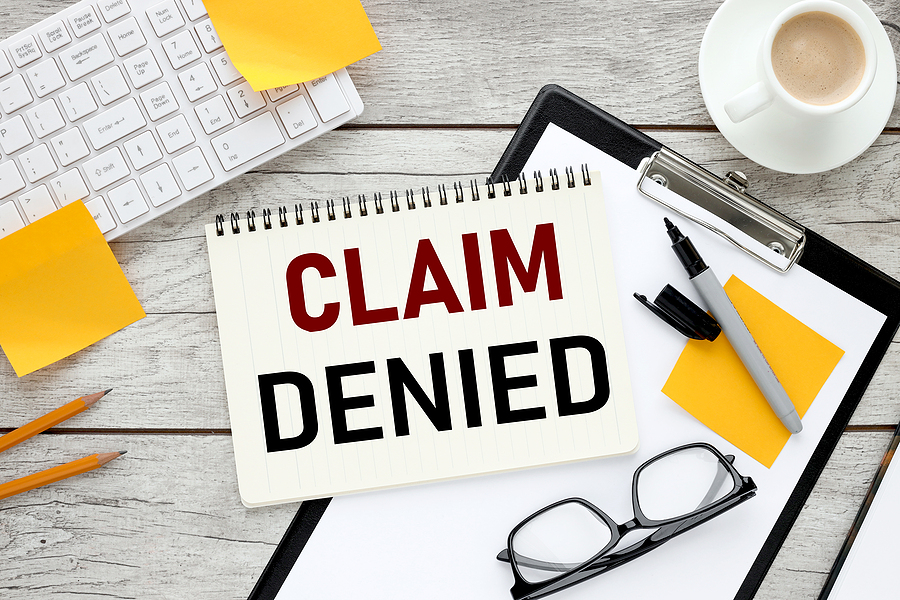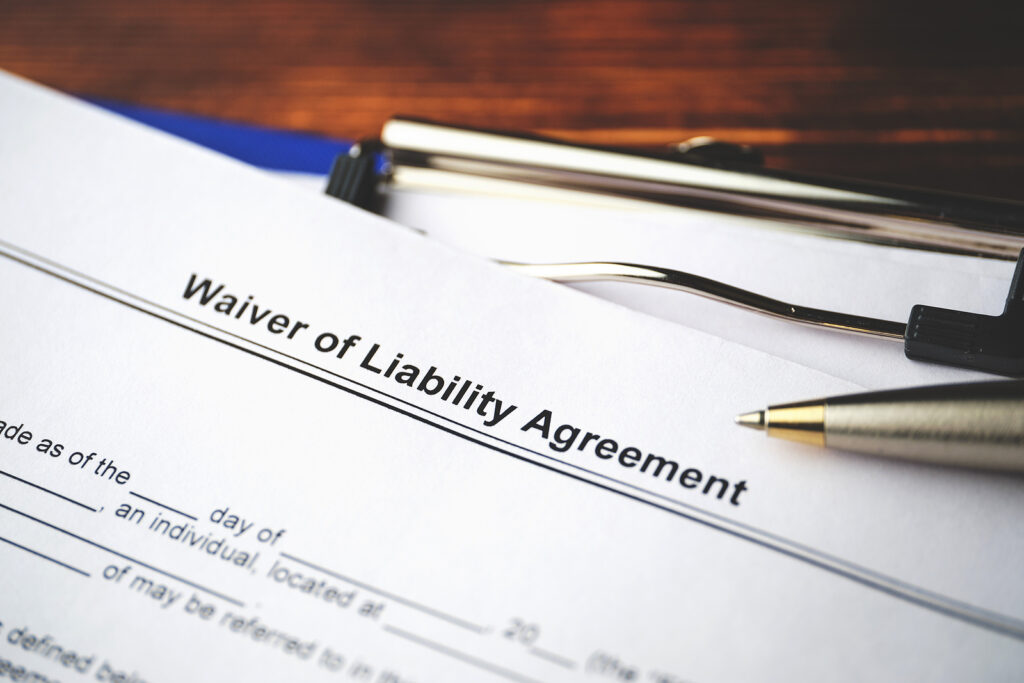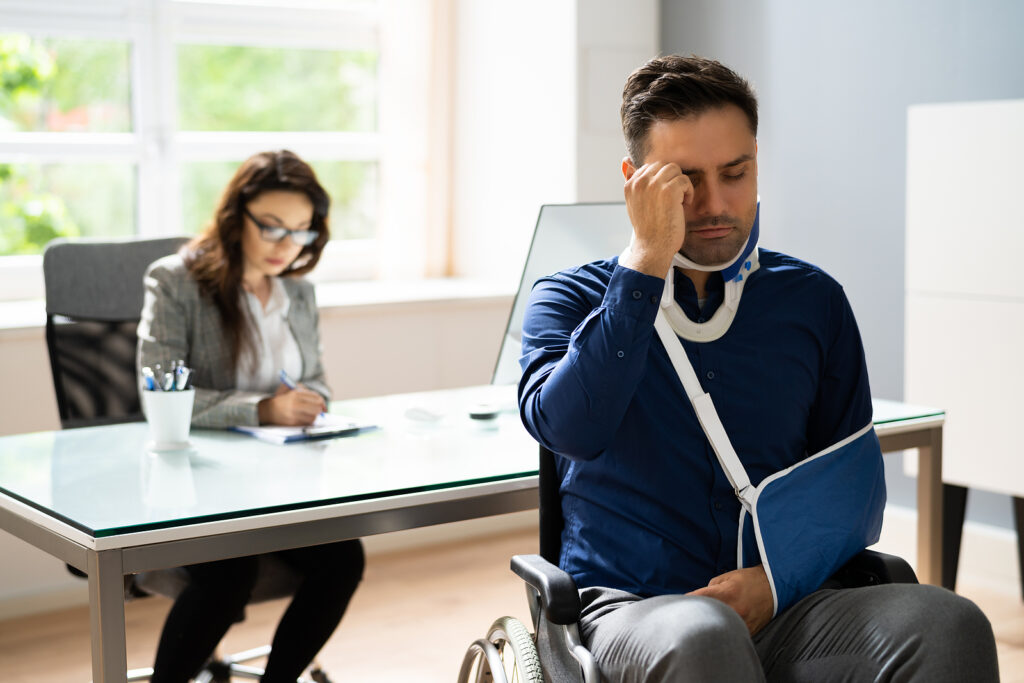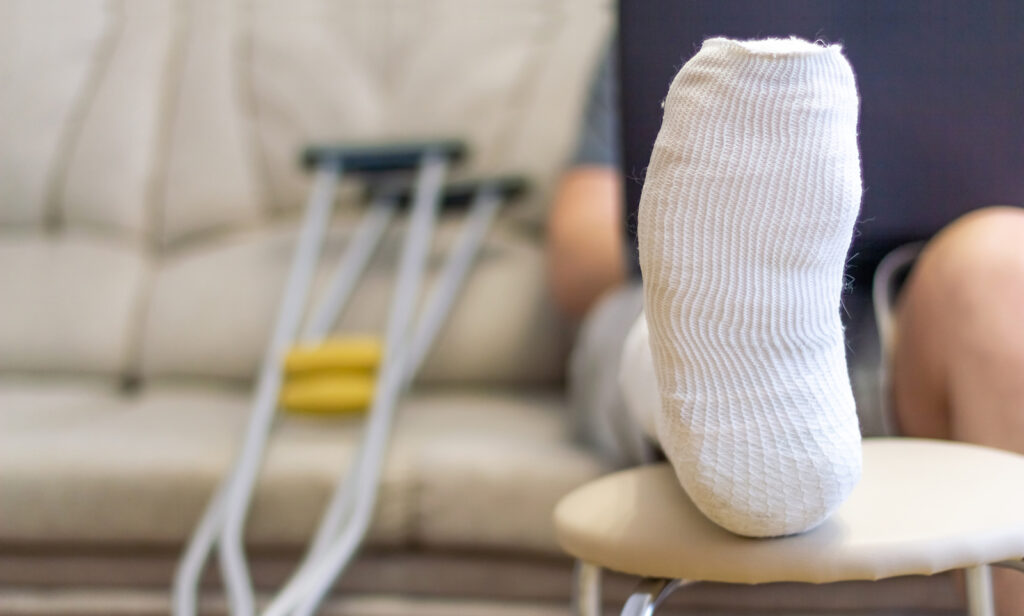If an adjuster denies your personal injury claim, you still have legal recourse. An experienced Indiana personal injury lawyer will fight the insurance company and ultimately recover the settlement or verdict you deserve. Continue reading to learn what to do if an insurance adjuster denies your injury claim, plus who to trust in Indianapolis for seasoned personal injury representation.

Coverage for Personal Injury Damages and Losses
When a person is wrongly injured, the at-fault party’s insurance company is held liable for the victim’s subsequent economic damages and losses, and sometimes, non-economic damages like prolonged physical therapy, pain-and-suffering, loss of companionship, and more if the at-fault party had liability coverage. Examples of common economic damages include hospital bills, medical expenses, lost wages from missing work, future compensatory losses, and much more.
Personal injury damages and losses generally depend on the severity of the accident and resulting injuries, as well as local jurisdiction. On the other hand, there are times when the faulted party’s insurance company denies liability after a victim submits their claim, stating that the law says the victim is responsible for the accident, and ultimately, any damages that may have been incurred as a result.
What Does an Insurance Adjuster Do?
In these cases, it is important to know more about adjusters and what their job entails to better understand what they tell injured victims. Furthermore, it is important to know that there are still viable options for personal injury victims whose claims are denied by the opposing party’s insurance adjuster.
An adjuster is usually not a lawyer or legal professional; they are regular insurance company employees. This means that they may have a broad idea on the law regarding their particular job role and the cases they oversee, but they do not have detailed knowledge of the law or the facts. They cannot possibly know whether you are liable for the accident that caused your injuries and losses. For this reason, it is vital to hire an experienced Indianapolis IN personal injury lawyer to navigate your claim and fight for fair compensation on your behalf.
Although insurance companies do not want you to hire or even speak with an attorney, they have their own in-house attorneys to assist their adjusters from day one, defending an injured party’s claim from the at-fault party’s perspective. Overall, insurance companies want to pay out the lowest settlement possible for every claim as they are in the business of making money, and the tactics they use are designed to pay out as little or nothing if possible. Insurance carriers have attorneys from day one and so should you.
What To Do if Your Claim is Denied
You should hire an attorney from day one following your collision and prior to talking with anyone else about the collision. Talk to a personal injury attorney in Indianapolis to learn your rights from day one. You should not try to be your own attorney.
Are you looking for qualified and trustworthy personal injury guidance in Indiana? Contact the Law Office of Craven, Hoover, and Blazek P.C. at 317-881-2700 to schedule a free personal injury case evaluation. Our seasoned accident attorneys can meet with you over the phone or computer, or in-person at our Indianapolis law office. We represent injured persons throughout the state of Indiana and Indiana residents injured in other states.
Related Posts:
Tactics Used By Insurance Companies To Try To Lower Bodily Injury Settlements
What Do I Say to Insurance Adjusters After Being Injured in a Car Accident?
Can I Discuss My Accident Claim With the Other Party’s Insurance Company?









